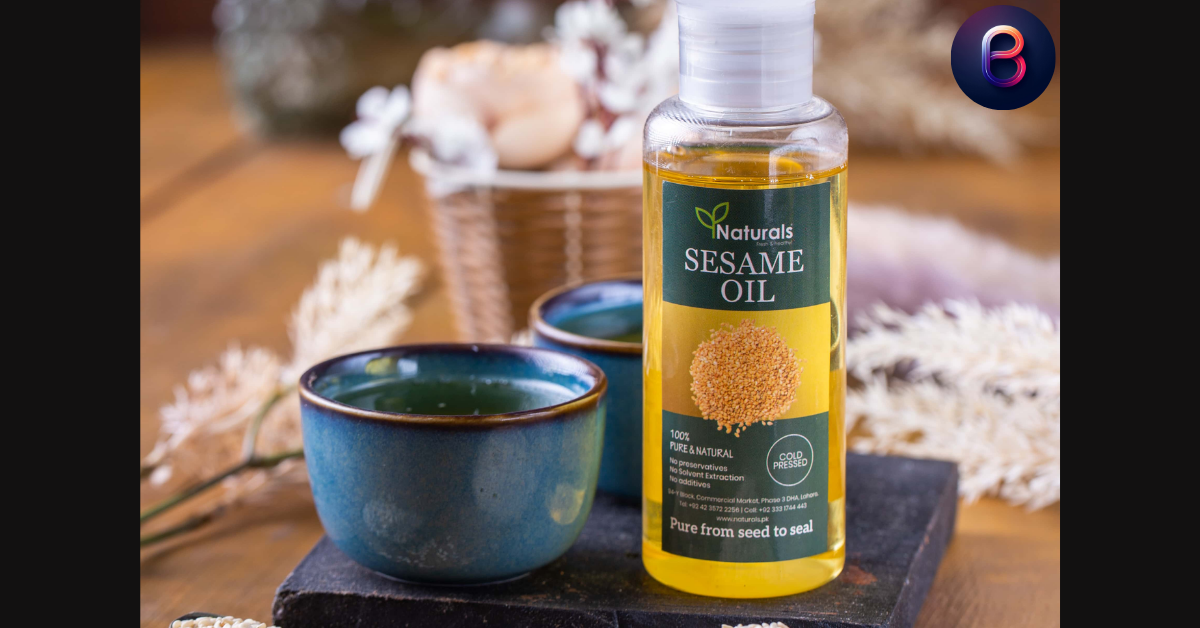Gingelly oil, also known as sesame oil, is a popular cooking oil with a rich history. Made from sesame seeds, this oil is cherished for its unique flavor and numerous health benefits. Many people use it in their kitchens for cooking and dressing salads. Understanding the properties, benefits, and possible risks of gingelly oil can help you make informed choices about using it in your meals. Let’s explore what makes this oil special and why it might be a great addition to your diet!
What Is Gingelly Oil?
Gingelly oil, commonly known as sesame oil, comes from sesame seeds. It has a light yellow color and a slightly nutty flavor that many people love. This oil has been used for thousands of years, especially in Asian and Middle Eastern cooking. There are two main types: cold-pressed and refined. Cold-pressed gingelly oil retains more nutrients and flavor, while refined oil has a higher smoke point, making it better for frying. No matter how you use it, gingelly oil can add a delicious touch to your dishes!
Also Check: Best Titan Watches of 2024 for Men and Women
Nutritional Profile
Gingelly oil is packed with nutrients that can be good for your health. It contains healthy fats, mainly unsaturated fats, which are better for your heart. Additionally, it is rich in vitamin E, which helps keep your skin healthy, and antioxidants that fight harmful substances in your body. Sesame oil also has omega-3 and omega-6 fatty acids, which are essential for your body. When compared to other cooking oils, like olive or sunflower oil, gingelly oil offers a unique mix of nutrients that can support overall health.
Health Benefits of Gingelly Oil
- Cardiovascular Health
Gingelly oil can be good for your heart. It helps lower bad cholesterol levels and may reduce the risk of heart disease. Studies suggest that using sesame oil instead of saturated fats can lead to better heart health. - Anti-Inflammatory Properties
This oil contains powerful antioxidants, like sesamol and sesamin, which help fight inflammation in the body. By reducing inflammation, gingelly oil can assist with conditions like arthritis and other chronic diseases. - Bone Health
Gingelly oil is a great source of calcium, which is important for strong bones. Regular use of this oil may help prevent conditions like osteoporosis, especially in older adults. - Skin and Hair Benefits
Many people use gingelly oil for their skin and hair. It moisturizes the skin, making it look fresh and healthy. It can also strengthen hair and reduce dryness, making it a popular ingredient in shampoos and lotions. - Weight Management
Using gingelly oil in your diet can help with weight control. It boosts metabolism and can help your body burn fat more efficiently. When used in moderation, it can be a helpful addition to a healthy diet.

Culinary Uses
Gingelly oil is very versatile in the kitchen! You can use it for frying, sautéing, or even in salad dressings. It adds a delicious flavor to stir-fries, marinades, and various dishes. In many Asian countries, sesame oil is a common ingredient in traditional recipes, like noodles and curries. You can also drizzle it on vegetables or mix it into dips for extra taste. It’s easy to incorporate gingelly oil into your meals, whether you’re cooking or preparing a fresh salad.
Properties and Characteristics
Gingelly oil has some unique properties. It has a light yellow color and a pleasant, nutty aroma. This oil can last for a long time when stored properly in a cool, dark place. The shelf life of gingelly oil is usually around six months to a year. It’s best to choose high-quality oil, like organic gingelly oil, to enjoy its full benefits and flavor. Remember to check the label for freshness!
Risks and Precautions
While gingelly oil has many benefits, there are some precautions to consider. Some people may be allergic to sesame seeds, which can cause reactions. If you’re allergic, avoid using gingelly oil. Additionally, consuming too much oil, including sesame oil, can lead to weight gain and other health issues. It’s best to use it in moderation and balance it with a variety of healthy fats in your diet.
How to Incorporate Gingelly Oil into Your Diet
Adding gingelly oil to your meals is simple! You can use it in cooking, salad dressings, or as a finishing oil for dishes. Try drizzling it over steamed vegetables or mixing it into a homemade vinaigrette. For a tasty snack, pop some popcorn and toss it with gingelly oil and a sprinkle of salt. Remember to adjust the amount based on your taste and preferences!
Environmental and Ethical Considerations
When choosing gingelly oil, it’s important to think about where it comes from. Look for sustainably sourced sesame seeds, as this supports local farmers and communities. Choosing organic options can also help protect the environment by reducing the use of harmful chemicals. Being mindful of these factors can make your choice of gingelly oil not just healthy for you but also good for the planet.
Also Check: Essential Guide to Wellhealthorganic Home Remedies
FAQs
- Is gingelly oil healthy?
Yes! Gingelly oil is rich in healthy fats and antioxidants, making it a good choice for cooking. - Can people with allergies use gingelly oil?
No, if you have a sesame allergy, you should avoid gingelly oil. - How do I store gingelly oil?
Keep gingelly oil in a cool, dark place to maintain its freshness and flavor. - What dishes can I make with gingelly oil?
You can use gingelly oil in stir-fries, salad dressings, and marinades, among other dishes.
Conclusion
In summary, gingelly oil is a flavorful and healthy option for cooking and dressing your meals. With its many benefits, from heart health to skin care, it’s worth considering adding this oil to your diet. Remember to use it in moderation and enjoy experimenting with different recipes. Give gingelly oil a try and discover the delightful taste and health advantages it brings!





